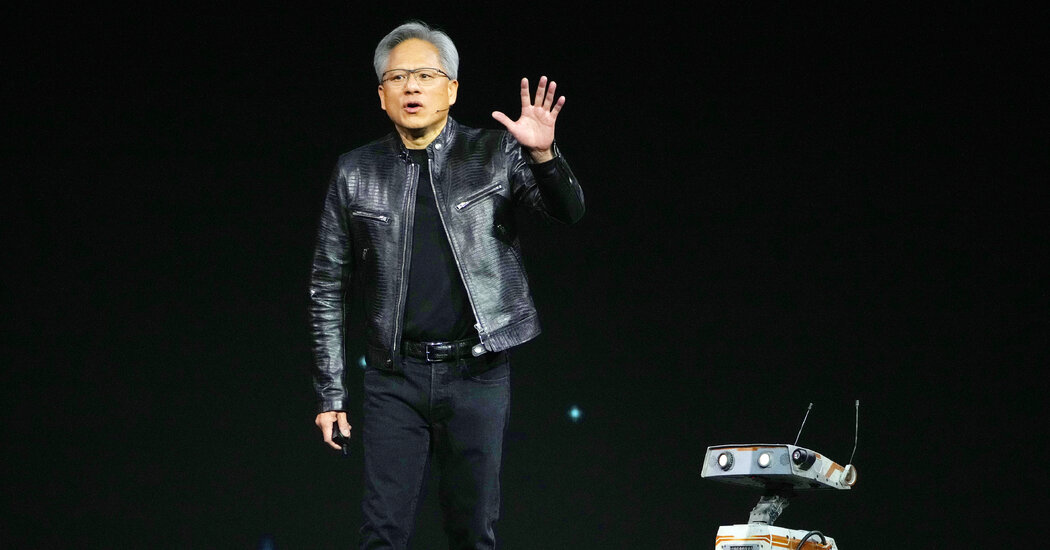With a 90 percent share of the A.I. chip market, the company is facing antitrust investigations into the possibility that it could lock in customers or hurt competitors.
Nvidia rocketed to the top of the tech industry by providing the computer chips essential to building artificial intelligence. By the end of last year, it had more than a 90 percent share of those chips sold around the world.
That success has quickly brought government scrutiny. Authorities with the European Union, Britain and China asked the company for information about its sales of those important chips, allocation of supplies and investments in other companies, according to Nvidia’s financial filings.
The Justice Department has also started investigating Nvidia’s sales practices and will review one of the company’s most recent acquisitions, said three people familiar with the inquiries, who asked for anonymity because it is early in the process.
Nvidia wasn’t ready for the attention, and is now racing to build the staffs and offices needed to respond. Just last year, Nvidia started searching for an office in Washington and hired four public policy employees. This year, it added its first in-house competition attorney to work alongside a legal team that has been addressing antitrust questions over the past decade. And it has begun developing a strategy to respond to government interest.
Nvidia’s scramble speaks to the narrow window it has to head off the kind of regulatory attention that has hamstrung other tech giants. Google, Apple, Amazon and Meta had at least a decade to build up sophisticated Washington operations ahead of antitrust lawsuits, which have cast a shadow over their businesses. On Monday, a federal judge issued a landmark ruling that Google had violated antitrust law by abusing a monopoly over internet search.
For Nvidia, the business stakes are enormous. Over the past two years, its quarterly profits have risen ninefold to $14.88 billion. Investors have responded by making it the world’s third-most-valuable technology company after Apple and Microsoft, with a value of about $2.5 trillion.
